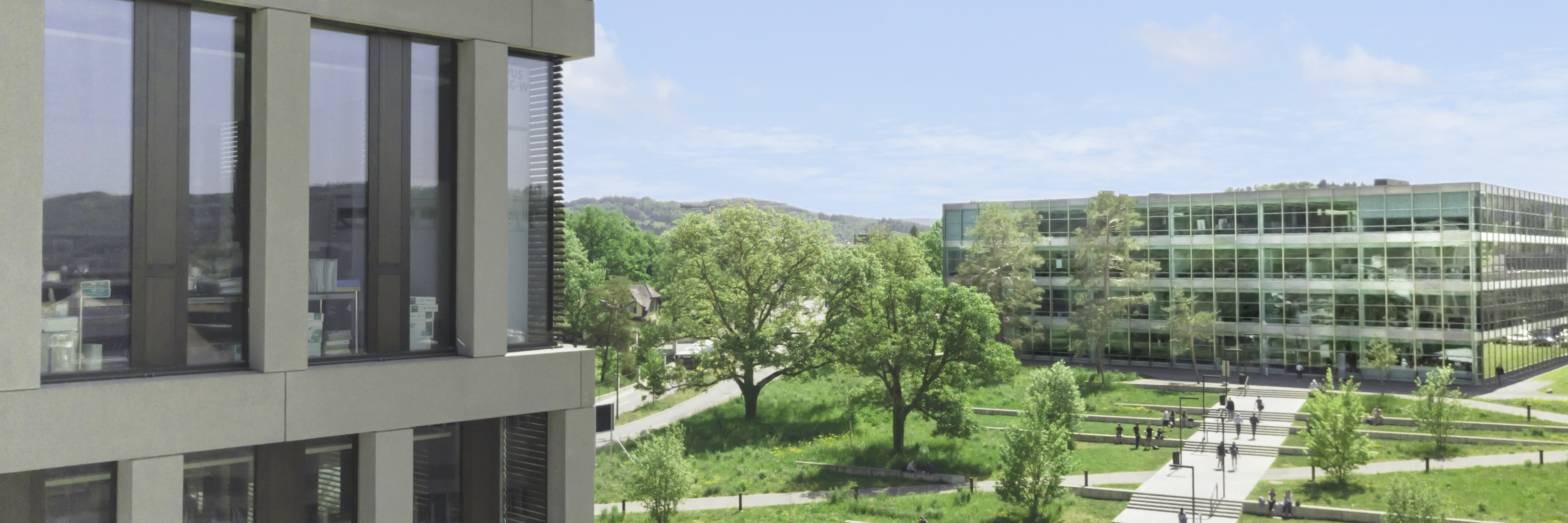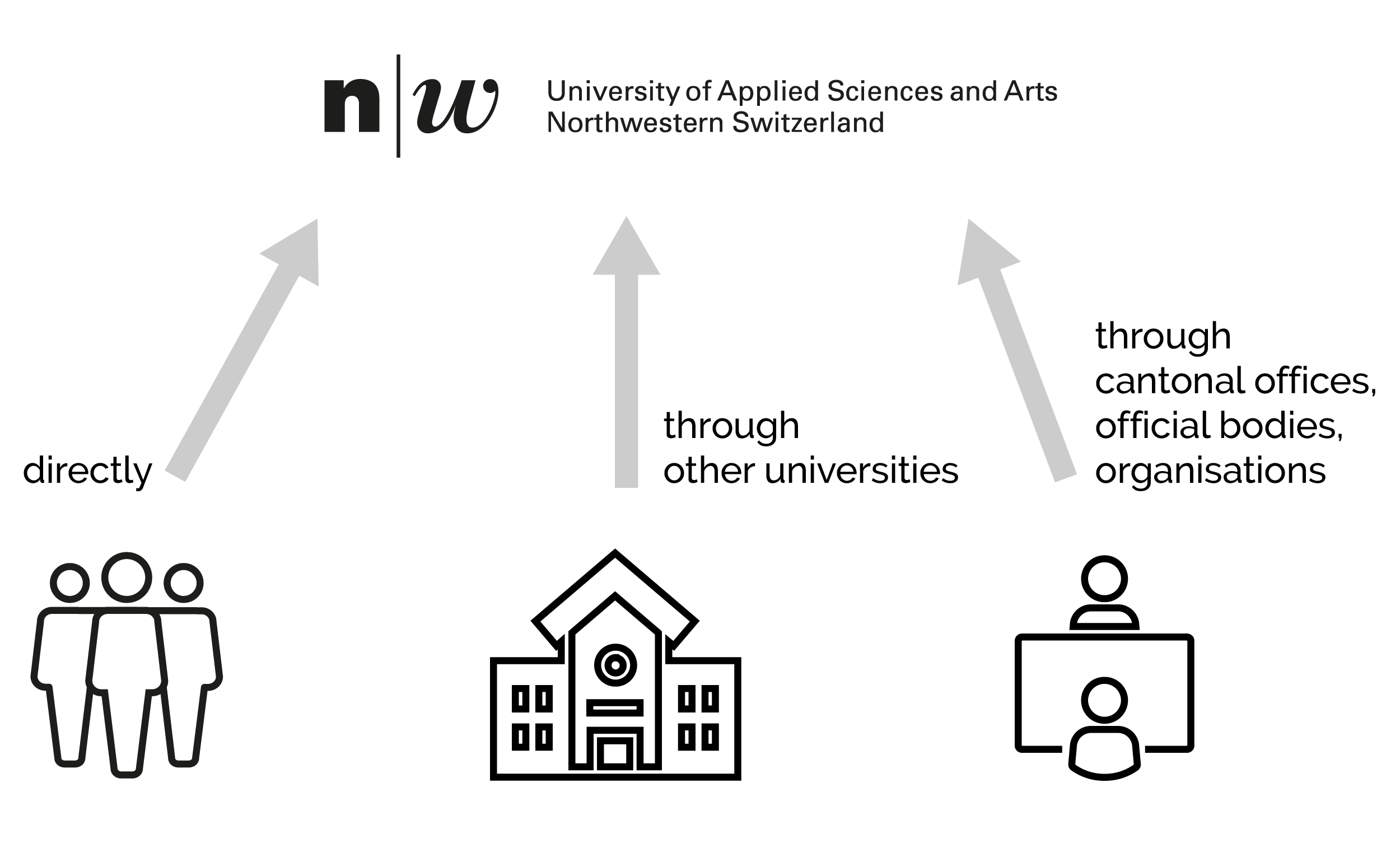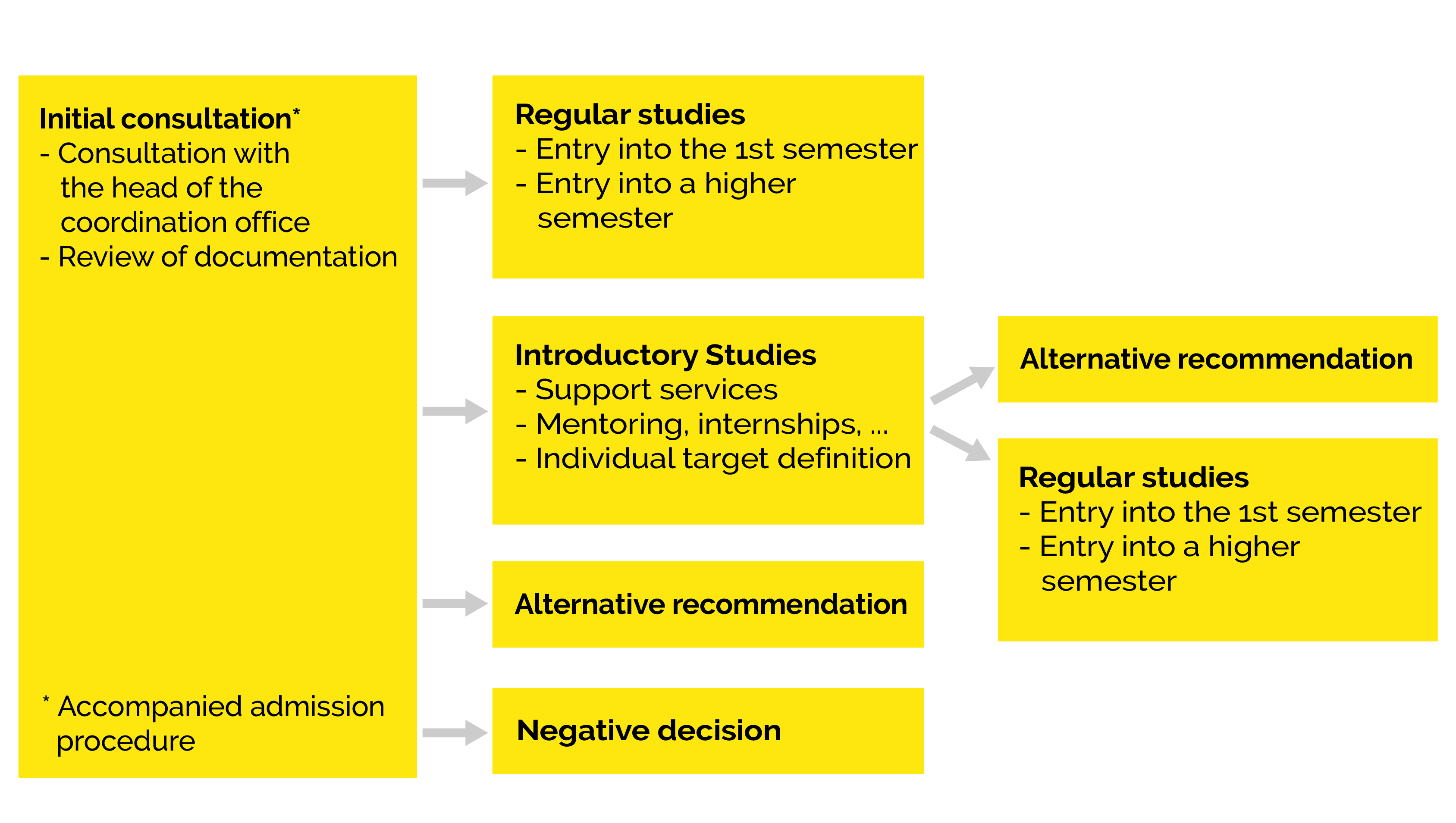Project Integral: Supported university access for qualified refugees
The aim of the Integral project is to institutionally support university access for qualified refugees at the FHNW School of Engineering and Environment and to accompany them on their way to regular studies and in the first phase of their studies.
The offer is primarily aimed at refugees who are interested in studying and have the appropriate qualifications, regardless of their residence status. The secondary target groups are education and integration stakeholders at the cantonal level, from the areas of potential assessment, cantonal integration offices, social services, vocational and career counselling offices, NGOs, etc. The programme is also aimed at the integration of refugees. Close networking and cooperation in supporting the students is being sought with these organisations.
The following is an overview of the courses offered at the FHNW School of Engineering:
In principle, there are three ways for refugees interested in studying at the School of Engineering to enter the college: contacting the School of Engineering directly (through Coordination Office Integral), via other colleges and universities, or via cantonal offices and other official bodies and organisations in the field of integration, migration and education.
Depending on the qualifications, direct access to the School of Engineering may be possible. However, it is also possible to obtain any outstanding qualifications for access to the School of Engineering within the framework of an individually tailored introductory study programme. This introductory study programme is the actual core of the Integral project and consists of various preparatory courses that can be taken by the qualified refugees after individual clarification. These can for example include mathematics and physics modules. An initial interview between the refugees interested in studying and the coordination office Integral as well as an initial examination of the documents provides information on how to proceed. It may be that no admission is possible or that an alternative is recommended.
There are different admission criteria for regular admission and admission to the introductory programme. The basis for both is proof of appropriate previous education and language skills in German. If the proof of previous education cannot be provided with documents (diplomas, etc.), it is possible to individually clarify whether a qualification exists.
Further information on the general admission requirements (German only)
Project Integral includes various support services that can be made use of by refugees interested in studying or with qualifications after clarification and according to need (in cooperation with external agencies and organisations). At the beginning of the introductory study programme, concrete goals are defined together and achievement is reviewed during and at the end of the introductory study programme. The achievement of these goals is a condition for entry into the regular study programme. These can be, for example, language skills and/or a certain number of preparatory or refresher courses attended and passed. Participants are also required to be as independent and proactive as possible right from the start. These are both qualities that are of great importance at the latest in regular studies.
Project Integral is being implemented as a pilot as part of a regional funding project, in cooperation with the Association of the Swiss Student Union VSS and the University of Applied Sciences and Arts Western Switzerland HES-SO. Project INVOST (Integration Pre-Study at Universities of Applied Sciences) pursues the goal of enabling highly qualified refugees to prepare for regular studies at a university of applied sciences with targeted support measures. With the FHNW and the HES-SO, two regional universities of applied sciences are taking the initiative and are proactively campaigning as institutions for more equal opportunities in access to higher education.
Project INVOST (Integration Preparatory Studies at Universities of Applied Sciences) is supported by the Volkart Foundation and Foundation Mercator Switzerland.



